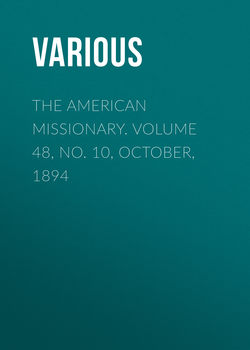Читать книгу The American Missionary. Volume 48, No. 10, October, 1894 - Various - Страница 4
CAPITAL AND LABOR
ОглавлениеCapital and labor are twin brothers, but they have been alienated almost from childhood, and the strife between them waxes warmer and warmer, and, like all other vexed questions, will never be settled till it is settled right.
There are various forms of these troubles—now in the coal mines, now on the railroads, and now in the shops—but there are aspects of the struggle which put on national traits and overthrow empires. The French Revolution was a struggle between capital and labor. The capitalists were the aristocracy, and they monopolized also intelligence and power. With these advantages they ground down labor till patience was changed to implacable rage, and the reaction brought forth the most serious and terrible massacres recorded in history.
Our great civil war of 1861-65 developed one aspect of the conflict between capital and labor. The slaveholders were the capitalists, and with them also were the intelligence and power. These levers were used to crush down the laborer into the severest form of slavery known among men. Labor was patient, but large sympathy was developed in the North in favor of the slave. This alone would not have brought on the war. Southern capitalists gloried in their power, and, accustomed to absolute domination over their slaves, assumed the same attitude of superiority over their fellow-citizens of the North. They ruled in Congress, dominated over the press and the pulpit, and, ambitious to extend their dominion, demanded larger territory for the extension of the slave system. When this was refused, they set up an independent standard and brought on the war. The end was disastrous to the South. The capitalists were well-nigh ruined and the slaves were set free.
On this same plain, growing out of the embers of that same conflict, another and almost as threatening a struggle is rising up before us. The white race in the South still largely controls capital, intelligence and power, and these forces are again used to hinder the impoverished laborer. The white man holds office, from which the black man is excluded, who is denied opportunities and privileges which crush his manhood. The contest is again unequal, and the outcome must take one of two forms. Either the oppressed laborer will rise in rebellion—and whatever may be the ultimate result the conflict will be dreadful—or, on the other hand, the laborer, denied education, a comfortable home and a chance to accumulate property, will sink into an utterly hopeless degradation, a curse to himself and to the whole South.
What is the remedy for all this? There is a remedy, and if applied promptly may save the nation from either of the catastrophes we have named, and that is: Give the black man a chance to acquire property, education and power equal to his white neighbor, and the elements of the struggle are gone. This is the work the American Missionary Association is attempting to do. It meddles not with theories, or parties, but aims quietly to give the needed help to the Negro.
